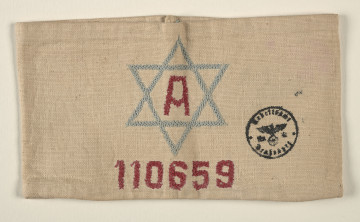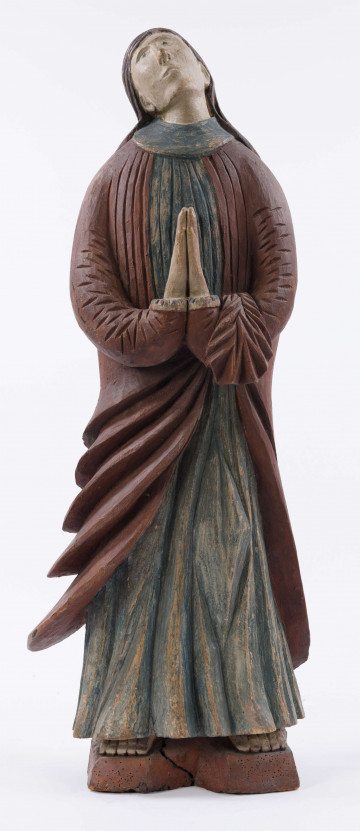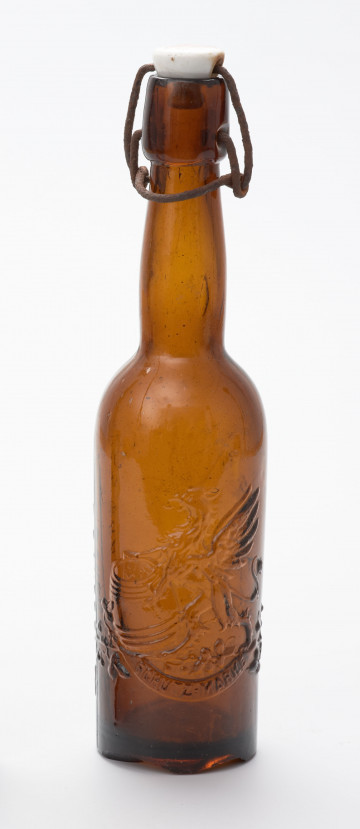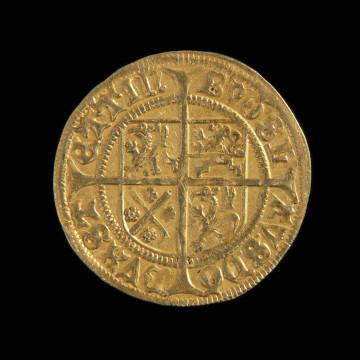
Discriminatory armband
1941 — 1942
Museum of the history of Polish Jews
Jakub Sobel (1902-1990) was an entrepreneur living in Stryj, a city about 70 km from Lviv (https://sztetl.org.pl/pl/miejscowosci/s/971-stryj/99-historia-spolecznosci/138574- community-history). Before the war, he worked as a freight forwarder, transporting goods in a horse-drawn cart, which in those days allowed for a comfortable life for the family. In 1932, he married Eda, née Wang (1905-1965). Even before the occupation, the couple had two sons, the first was born in 1934, the second in 1939.
On 22 September 1939, Stryj was seized by the Red Army. The new authorities liquidated Jewish organizations, and the most important members of the Jewish community were arrested or deported. On 2 July 1941, German troops entered the city. The ghetto in Stryj was opened on 1 December 1942. Until then, some Jews living in the city were forced to work in German military barracks (German Heeresbaracken werke) to work for the Wehrmacht. Jakub Sobel also belonged to this group. Workers slept in their homes, reporting to work in the barracks every morning as free labour. Before all the Jews were transferred to the ghetto, a Polish neighbour organised a hiding place for the Sobel family. The help resulted from gratitude for the earlier material support that Jakub had given her. The woman hid five adults (Jakub with his wife, his sister with her husband and his mother-in-law) with their older son, the Sobel family, in a one-room apartment of her brother - a railwayman named Kozdrowicz. As the younger son was only a few months old at the time and his crying might reveal the family's hiding place, the child was moved to another house. The man who undertook to hide the boy received 300 dollars from the Sobels. .
In August 1944, the city was "liberated" by the Red Army. When the Sobel family came out of hiding, it turned out that, despite the salary, the younger son's guardian did not keep his word and got rid of the child. Jakub was arrested as a capitalist by the NKVD. One of the guards (also a Jew) allowed him to escape from prison. In the beginning, Sobel went with his family to Przemyśl, then to Kraków, where he took the position of the manager of the MHD (Miejski Handel Retail) company. In 1956, under the influence of the persistent anti-Semitic moods in Poland, the Sobel family decided to emigrate to Vienna. The souvenirs were donated to the museum by the daughter of Jakób and Edy Sobel, Felicja Shop, who was born when the family lived in Kraków.Marta Frączkiewicz
Znaleziono 16 obiektów

1880 — 1900
National Museum in Lublin

1901 — 1945
National Museum in Szczecin

1498 — 1499
National Museum in Szczecin
DISCOVER this TOPIC
Museum of King Jan III's Palace at Wilanów
DISCOVER this PATH
Educational path